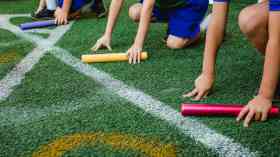Breathing life into education
 The process of teaching or learning is generally delivered through a traditional classroom approach. Children are contained within a warm, stable, consistent and artificial environment separated from the elements, the seasons and the variety that nature provides. Children discover and experience their worlds through discussion, visual representations in books, on screens, though the provision of IT equipment and increasing use of the internet.
The process of teaching or learning is generally delivered through a traditional classroom approach. Children are contained within a warm, stable, consistent and artificial environment separated from the elements, the seasons and the variety that nature provides. Children discover and experience their worlds through discussion, visual representations in books, on screens, though the provision of IT equipment and increasing use of the internet.
While traditional approaches are essential, neuroscience is starting to show us that the brain works most successfully when exposed to a wide range of learning environments, exploring a range of natural, educational, industrial and cultural surroundings that will engage and energise children in a way that simply sitting at a desk or computer screen fails to.
Though working in real life environments in nature can be a step away from our comfort zones, it is something that Government recommends. School managers are encouraged to support teachers to engage in this new methodology and add it to the many theories and practices of teaching. It is recognised that by combining classroom teaching with outdoor experiences significant achievements can be made by children, supporting a holistic education and life long approach to learning.
Learning from scientific research
Learning outside the Classroom (LOtC) is a government supported process that provides a quality mark for all of those providing learning experiences outside the classroom, including visits to museums, woodlands, natural spaces, and libraries. It is an opportunity to experience life in context and in social situations.
There is an increasing range of neurological and educational research that suggests that spending time in green spaces supports children with additional needs. Attention restoration theory proposes that natural green spaces can increase levels of concentration through allowing individuals to actively direct attention and tune out distractions, thus helping children with ADD behaviours. Natural environments allows for a less formal approach and engender positive learning and meaningful relationships with peers, teachers and supporting adults. Simply being in the natural environment has been shown to decrease stress, develop positive attitudes to the environment and to self and others, reduce sickness and illness, improve activity levels and encourage empathy as well as contribute to an improvement in reading, writing, mathematics and other subjects.
Concepts and practices
The purpose of outdoor education varies in different age groups. The requirements of outdoor exposure will be different for pre‑school children, primary school children, secondary school students and beyond. The most important age group when most of our human faculties develop is up to the age of 10, making pre-school and primary education the most important for outdoor experiences. This is linked with the creation of a positive environmental identity that will impact on behaviours that last into adulthood.
Reversing trends
There is now growing concern about the poor understanding of young children about food, farming and sustainability issues. The Education and Skills Select Committee Enquiry and the Government Growing School Programme have expressed concern about the need for proper outdoor education. DfES seeks to enable “schools to make better use of the outdoor classroom as a context for teaching and learning.” The National Foundation for Educational Research (NFER), King’s College London, and the University of Bath have come out with recommendations for outdoor education.
The Select Committee has noted that “what is needed is a coherent strategy for education outside the classroom that brings together good practices from around the country, rather than a small number of limited, if worthy projects.” The recommendations covered raising schools’ staff awareness about the opportunities offered by outdoor education, DfEs and other agencies developing teachers’ confidence in an outdoor context, the need for enhanced participation in outdoor education and the need for connecting students’ outdoor learning with the curriculum.
Developing motor skills
The last quarter of the twentieth century saw a decline in outdoor opportunities in the UK as playing fields were sold. With more use of technology and the regularising of surfaces and shapes from natural to manufactured, textured to smooth and plastic, there can be a decrease in the development of functioning which can lead to a wide range of issues.
Physical engagement has been shown to create stronger memories than simply looking at something. If a child has limited opportunity to experience a wide range of textures and shapes and qualities of materials then this has impacts such as losing the ability to walk with confidence and other skills like holding tools or objects such as pencils and pens, which affects the ability to manipulate those materials in order to process symbols, such as the alphabet. The understanding of teachers and senior management in creating opportunities for kinaesthetic experiences involving gross and fine motor skills is essential.
Research supports the concept that if a stick has been held, and played with, then later in their development phases, when that same child is introduced to specific associated resources, the perceptual experience is transferred. Tools are used in all sorts of activities in education and greatly in subjects such as design and technology and also in physical sports such as tennis, cricket and hockey. The more proficient a child is in this ability to use their fine and gross motor skills effectively the more able they will be to apply themselves.
A new learning experience
In traditional outdoor education a single outdoor visit is organised to support classroom teaching. Forest Schools is different in its approach as the programmes are worked out in detail in consultation between school and Forest Schools practitioners, and are integrated within the curriculum of individual children’s needs through assessments of holistic development phases.
The teaching theory is quite different, as the child is at the centre of the learning experience and time is essential in allowing exploration and self discovery to occur. The outdoor opportunity is provided consistently over a period of time, usually an academic year. The basic objective is the holistic development of children in relation to outdoor woodland environments and open spaces. There is freedom to choose, experience, and learn from the natural surroundings.
Appreciating the natural world
In contrast to traditional outdoor exposures to children, Forest Schools Education provides a comprehensive experience for overall development. Among these developments in children, the most distinguishable abilities are in relation to nature and the environment. Such an experience is distinct and highly advantageous from the point of view that these children are learning the foundation of sustainable development.
The understanding and love for nature that children develop through the long term process is marked due to the presence of the significant adult, the experimentation and exploration through the seasons and the ability to some degree to be independent and self determinate in the learning process. This advantage can be amplified if such exposures continue at secondary and other levels of education and even extend beyond the national boundaries to acquire international dimensions.
Safety vs risk
Furthermore, although those parents who did not want to send their children to Forest Schools stated that it was the high risk involved when allowing children on such programmes, all those who were a part of the study failed to mention even a single incidence to show that these fears were grounded in reality.
The decline in outdoor education may have been due to perceptions that high levels of risk have been associated with learning outside the classroom. Children need certain levels of risk, they need to be physically active and they need to understand the world through touch, experience and personal discovery, not simply through the screen or books or ‘being taught’, if they are to develop a realistic, empathetic and social relationship with the society in which they live.
Further information
www.forestschools.com
Latest News
27/11/2025 - 11:53
Ofqual has published revised statistics on access arrangements for GCSEs, AS and A levels, alongside new research into the role of time pressure in assessment.
26/11/2025 - 15:22
The announcement follows an earlier pledge of £10 million in funding to provide every primary school in England with a library by 2029.
26/11/2025 - 10:18
The Diets Toolkit recommends that governments introduce more plant-based options in schools, alongside hospitals and other public institutions,
25/11/2025 - 13:05
New data from The Careers & Enterprise Company (CEC) finds that around two-thirds of businesses believe a two-week block of work experience is too time-consuming and offers too little benefit.
25/11/2025 - 12:57
The Youth Sport Trust has launched its latest Class of 2035 Report, warning that unless urgent action is taken to increase physical activity among children, this generation will face poorer health and outcomes.







